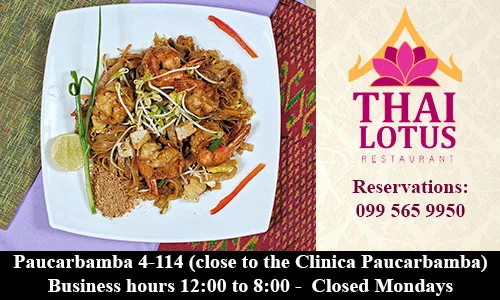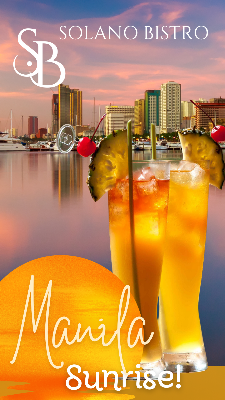Where did it all go wrong? Don’t be duped – think it out for yourself
 By John Keeble
By John Keeble
Hey, Daddy, what did you do in The Great Pandemic of 2020? Well, son, I stayed at home, drank a lot of wine, and thought.
But, Daddy, couldn’t you have done something more important than think?
Actually, son, no. Thinking was the most important thing that most of us could do. While others saved lives with selfless dedication, the rest of us had to isolate ourselves. We had the time and the need to evaluate our own lives, beliefs and attitudes – and to work out where our world went wrong and how to put it right.
You can imagine that family conversation ten years on when Covid-19 has been beaten but remembered as the killer that changed the lives of the survivors. This is how it continued:
 At that time, in the early months of 2020, we thought the pandemic was the worst disaster that could befall us. Then it gradually sank in that, if one incredibly small virus could bring us to our knees in a few months, maybe the other warnings could be right too.
At that time, in the early months of 2020, we thought the pandemic was the worst disaster that could befall us. Then it gradually sank in that, if one incredibly small virus could bring us to our knees in a few months, maybe the other warnings could be right too.
Before the pandemic, people sort of knew about the risks to the future but most of us soothed ourselves with lullabies like It’s Someone Else’s Fault, There’s Nothing We Can Do, The Parrot Song (Fake News! Fake News! Fake News!), I’m Okay – What’s the Fuss?, and It’s Happening to Someone Else And That’s OK, Yeah, Yeah, Yeah.
Then along came Covid-19. What a shocker. In the UK, despite death stalking across Asia and Europe, the government was so slow and inept that it could not even protect the heir to the throne and the Prime Minister. In the U.S., pretty much the same incompetence but with a massively higher death toll.
Except, of course, it was not just being slow to react. It was the political ideologies and economic systems that favoured the rich and buggered the poor, the vulnerable, the animals, and the environment that we all depend on.
When I think of those two great peoples – courageous, generous, hard-working – and the politicians who failed them so miserably, I cannot help thinking of the World War One assessment of the men who fought and the generals who sent them to their deaths: Lions led by donkeys.
A problem is that human lions are often good people who believe the best in others. They are often easily led by emotion-jerking and lies. And human donkeys may be hopelessly incompetent and self-serving but have the unconscionable ability to mislead with lies and emotional manipulation.
 Then there is the very human problem. Once we have set up our mental universe that reassures us we are right and safe, it is very difficult to change. The trenches sorted that out in WW1. Covid-19 sorted it out for many in 2020. The virus crisis gave enough of a shock to us personally and the human world generally for people to see new realities and the need to change to survive.
Then there is the very human problem. Once we have set up our mental universe that reassures us we are right and safe, it is very difficult to change. The trenches sorted that out in WW1. Covid-19 sorted it out for many in 2020. The virus crisis gave enough of a shock to us personally and the human world generally for people to see new realities and the need to change to survive.
Tragedy, contradictions, hope, anger, wounding humour … you could read the news any day during the pandemic. If you were there, you could see and witness it.
The British Prime Minister thanked the National Health Service for saving his life. This sparked some hope that his political party and government would stop trying to wreck it. In the U.S., the president got his foot stuck in his mouth again – at a time when 2,000 Americans a day were dying he praised the virus as a genius bacteria … er… no matter, at least he managed to sign orders to open more wild areas to hunting and fishing, and authorise plans for a massive frigging fracking scheme likely to make global warming targets impossible.
In the real world, lockdowns showed how human pollution was ruining the planet. Reduced pollution drew gasps with reports and photos of clean air and natural water. For many people, it finally killed The Parrot Song.

Credit: Getty Images
Mostly unnoticed, other elements of the disaster-to-be were unfolding. The U.S. National Centers for Environmental Information, for example, reported that parts of the Indian, Pacific and Atlantic oceans were hitting record high temperatures, according to Bloomberg writer Brian K. Sullivan. “The high temperatures could offer clues on the ferocity of the Atlantic hurricane season, the eruption of wildfires from the Amazon region to Australia, and whether the record heat and severe thunderstorms raking the southern U.S. will continue.”
It was a time when people began to realise they were victims of gaslighting – the creation of false “realities” to make them doubt their sanity and the truths they had witnessed for themselves.
They started to face up to the rapidly increasing severity of social and environmental problems.
- The climate is being wrecked. How do you feel about that? What should we do?
- The health systems are disgracefully unfair and getting worse. What should be done?
- Moral leadership has dropped into the cesspool with good people destroyed because of the colour of their skins, with children ripped from their parents and held in concentration camps, and with vulnerable people, including veterans, driven to suicide. Are you happy with that?
- Law enforcement is so pathetic that armed gangs can protest openly for the right to catch and pass on Covid-19. How much more will you put up with?
Many people realised during the pandemic’s lockdowns that they needed to stop reacting to emotional jerks from politicians and big business, start thinking for themselves and their families, and come in from the hateful illusions of personal gain to join the warmth of those trying to save our societies and the world for future generations.
 Not that personal gains amounted to much for most people. The wealth of our ruthless free-market economies was going to the rich and powerful. A fraction was dribbled out to the middle and lower classes – and that was being ground down, year after year, as the rich took more and more and the planet paid an impossible price.
Not that personal gains amounted to much for most people. The wealth of our ruthless free-market economies was going to the rich and powerful. A fraction was dribbled out to the middle and lower classes – and that was being ground down, year after year, as the rich took more and more and the planet paid an impossible price.
That was part of deliberate and relentless inequality. In our nations, and between countries, it was a system where success was measured by how much overconsumption a person could indulge in. For the poor, it meant slum life, little or no medical care, poor food, no hope, early death. Covid-19 certainly increased that tub of misery with millions losing their jobs and medical cover.
Now, in 2030, we think of that time as the good old days. Odd, isn’t it?
In the post-pandemic years, people were too eager to snatch easy answers – we let the big corporations and the robber-baron political grabbers define the new reality in which they plundered our countries and the world.
Now, we have everything that many people feared before the Covid-19 epidemic: a world of devastating rises in sea levels, violent weather events everywhere, killer water and air pollution, rising temperatures, emasculated health services and social security. Civil conflict, too, but there is always enough money for “security”.
If only the people of 2020 had thought more about the future instead of where to get their next bottle of hand sanitizer. If only they had fought and voted to sanitize their nations and the world rather than just their hands.
Maybe that way, there would have been a future for people and the planet.
____________________
If you’d like more information, just take an interest and build up sources and knowledge. The three articles below and the Bloomberg article above will be a good start. Then make up your own mind about what kind of world you want after the epidemic, and what you can do to help bring it about. Three things are certain: there can be no return to the old world; whoever wins the battle to define the new world will set the course for the coming years, maybe decades; and enough raindrops can make a world cleaning flood.
Gaslighting, what you need to know
https://forge.medium.com/prepare-for-the-ultimate-gaslighting-6a8ce3f0a0e0
Christian writer Jim Taylor on: The three myths Covid-19 has killed
https://quixotic.ca/Home/ArtMID/20225/ArticleID/1497/Three-myths-Covid-19-has-killed
How your rights and protections have been ripped away
https://www.washingtonpost.com/news/politics/wp/2017/08/24/what-trump-has-undone/
John Keeble is an international photo-journalist living in Cuenca. He “retired” after 25 years with The Guardian in London and has spent the past 15 years giving media services to NGOs as well as writing about and illustrating social issues.


















